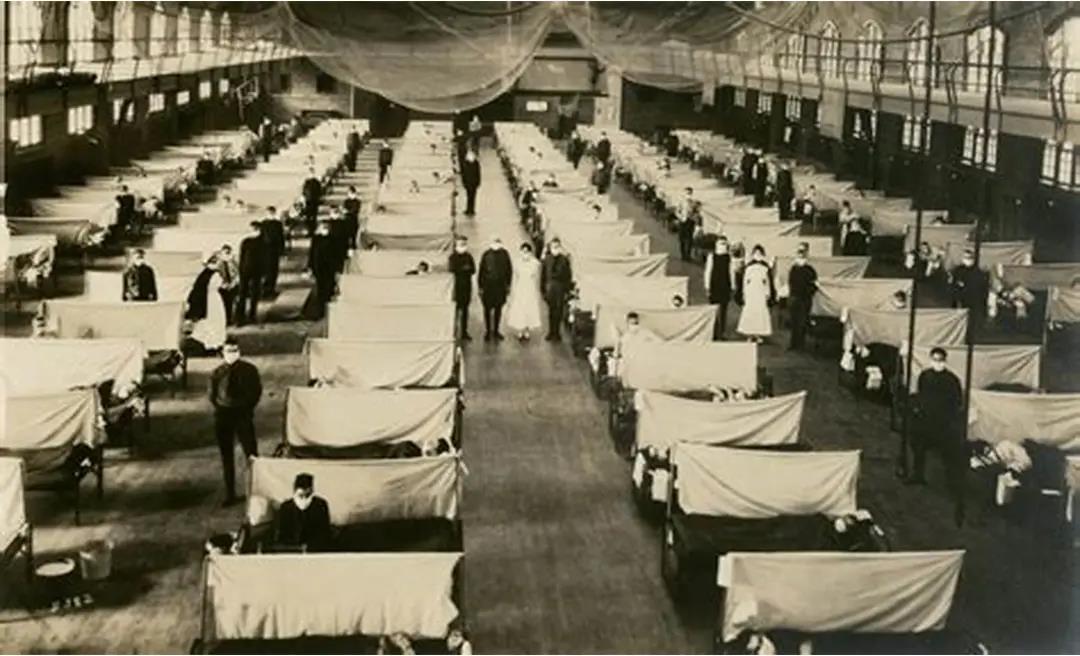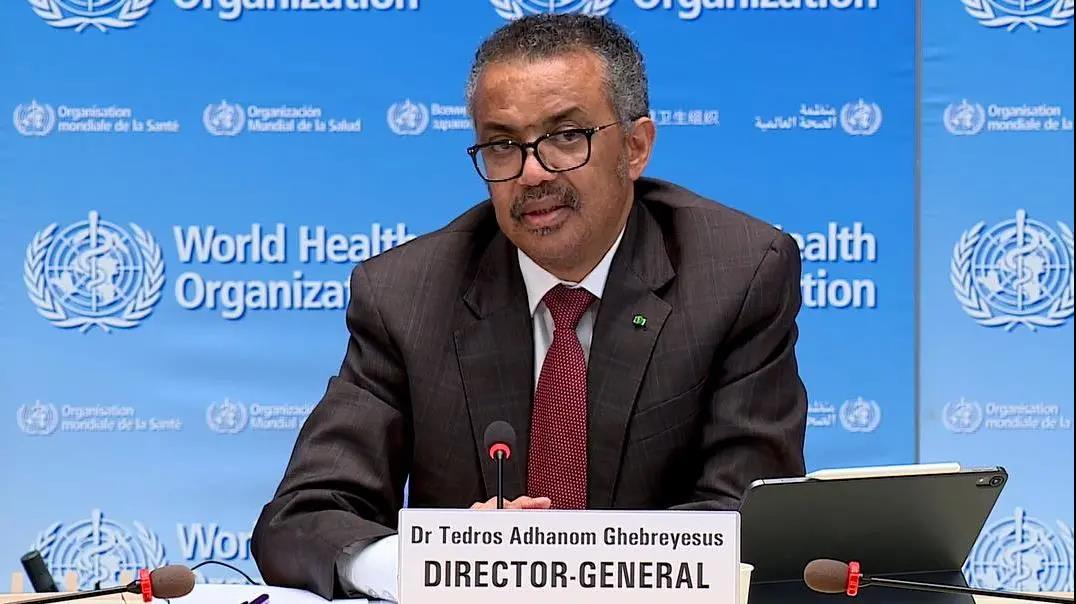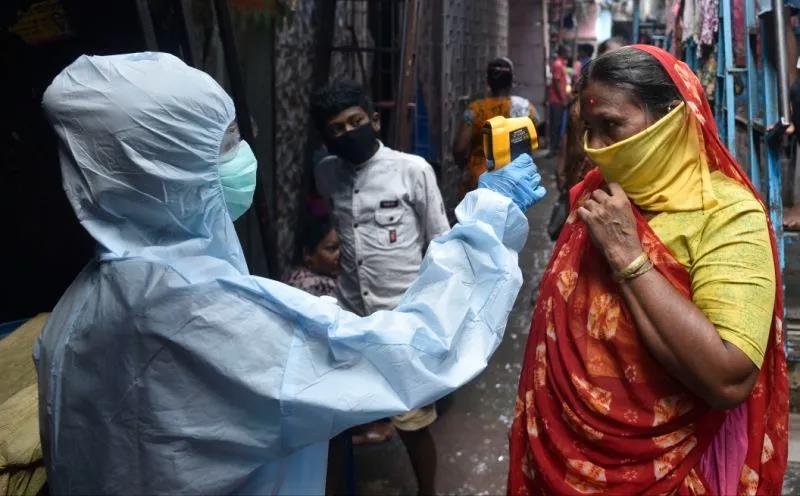何亞非
國務院僑辦原副主任、外交部原副部長、南京大學華智全球治理研究院高級顧問
The critical role the coronavirus pandemic has been playing in world history cannot be overstated. It’s a game-changer that has turned the world upside-down and topsy-turvy. Few countries can claim they are certain of the future, or ready for it, because what faces us in the foreseeable future is a mess of uncertainties and unfathomable pitfalls. We need to clear our collective heads and devise new strategies to meet ever-greater global challenges ahead.
新冠肺炎疫情在世界歷史上發揮的關鍵作用怎麼強調都不為過——它是一個改變遊戲規則的因素,使世界發生了翻天覆地的變化。很少有國家能夠聲稱自己對未來胸有成竹或者已有萬全之策,因為在可預見的未來,我們面臨的是紛繁的不確定性和難以理解的陷阱。為了應對未來更大的全球挑戰,我們需要一起清醒地思考和制定新的戰略。
一、我們應當怎樣看待這場疫情及其未來發展?
When will the pandemic blow over? Is another one just as deadly or even more lethal just around the corner?
這次疫情大流行何時會結束?另一場同樣致命或更致命的疫情是否就在眼前?
The verdict is in that the pandemic is certainly not over, and new waves are expected to hit Europe and other continents over the winter, together with regular strains of flu, according to experts at the World Health Organization. At least it will not be over until there are enough workable and durable vaccines to distribute around the world, or until more than 60 percent of the global population acquires antibodies through infections. Fortunately, many countries have made huge emergency efforts in the research and manufacturing of COVID-19 vaccines. There is light visible at the end of the tunnel. Let us keep our fingers crossed and be prepared for protracted and possibly repeated fights against future pandemics.
根據世界衛生組織的專家判斷,可以確定的是新冠肺炎疫情還沒有結束,預計新一波疫情將在冬季席捲歐洲和其他大陸,隨之而來的還有普通流感。至少在足夠的、可行的和持久的疫苗在全球普及之前,或者在全球60%以上的人口通過感染獲得抗體之前,疫情還不會結束。幸運的是,許多國家已經在COVID-19疫苗的研製上做出了巨大的努力。隧道的盡頭便是可見的光明。讓我們祈禱,並且做好長期和反覆對抗未來流行病的準備。

以中國為代表的許多國家已經在新冠疫苗的研製上做出許多努力。(圖片來源:新華社)
Is it true that more pandemics will come, or that just 「crying wolf」? The present consensus among scientists and medical experts is yes, with a 「but」 as to when a new pandemic will hit us again. The prospect is scary enough, considering what COVID-19 has done, but the history of microbial evolution and its interaction with humankind tells us not to be blindfolded or let our guard down. Do we have to accept the cold reality and be fully prepared for such an eventuality? The answer is obvious. We have no choice if we wish to live, and live a better life.
未來的流行病是否只是一種「狼來了」的呼喊?目前科學家和醫學專家的共識是否定的,至於新的大流行何時會再次向我們襲來,卻尚未有明確的答案。單單是考慮到COVID-19的「所作所為」,前景已經足夠令人恐懼。微生物進化的歷史及其與人類的互動告訴我們,不要被蒙蔽雙眼,也不要放鬆警惕。顯而易見,我們必須接受冰冷的現實,並為這樣的萬一做好充分的準備。如果我們想要生存並且是更好地生存的話,我們就別無選擇。
二、我們應當怎樣改善全球衛生治理體系?
With the global health governance system and its crisis management ability in total disarray, have lessons been learned to rebuild and reinforce the system as vigorously as possible in the context of constructing and maintaining a better-functioning architecture?
在全球衛生治理體系及其危機管理能力完全混亂的情況下,我們是否已經吸取了教訓,去構建和維護一個功能良好的治理框架,並且儘可能地去重建和強化這個體系?
In this connection, I agree with Michael Osterholm and Mark Olshaker that「short of a global thermonuclear war and the long-term impact of climate change, an infectious disease pandemic has the greatest potential to devastate health and economic stability across the globe.」 Other disasters are limited in space and time no matter how horrible they are, but pandemics know no boundaries and can last for a long time.
在這個問題上,我同意米高-奧斯特霍姆和馬克-奧爾謝克的觀點,即「除了全球熱核戰爭和長期氣候變化的影響之外,傳染病大流行是最有可能在世界範圍內破壞健康和經濟穩定的因素」。其他災難無論多麼可怕,都會受到時間和空間的限制,但大流行病不分國界,而且可以持續很長時間。
The 1918 flu pandemic claimed roughly 100 million lives worldwide, many more than the world war preceding it. Today COVID-19 has had already infected tens of millions, with hundreds of thousands of deaths, and the numbers are still growing fast. Because we have modern medicine, fewer lives are being lost now compared with the 1918 pandemic. Yet it is still hard to believe, for instance, that deaths in the United States from COVID-19 have already far exceeded the number of lives it lost in both the Vietnam and Korean wars.
1918年大流感在全球範圍內奪走了約1億人的生命——遠高於第一次世界大戰的死亡人數。今天已經有數千萬人感染、數十萬人死亡於新冠肺炎,而且這個數字還在快速增長。所幸我們有現代醫學護持,相較於1918年大流感,我們失去的生命更少。然而,令人難以置信的是,美國這樣的國家因新冠肺炎疫情而死亡的人數已經遠遠超過了它在越南戰爭和韓戰中所損失的人數。

1918年的大流感曾奪去一億多人的生命。(圖片來源:艾奧瓦州立大學圖書館官網)
Given the incalculable damage pandemics can do to humanity, an array of multilateral institutions and treaties were put in place after World War II as part of the global governance framework. So it’s ironic and regrettable that despite the tremendous efforts made so far, the seemingly impeccable system did not live up to expectations — though one might note that the system itself is not to blame so much as its members, who are the decision-makers. To the extent the global public health system functions, it is the member states, and especially the major powers, that are the real governors. The negative and dismissive attitude of the U.S. toward the WHO is quite revealing of this chilling reality.
鑑於大流行病對人類造成的傷害不可估量,二戰後,作為全球治理框架的一部分,一系列多邊機構和條約相繼成立和出台。但是令人覺得諷刺和遺憾的是,儘管迄今為止我們作出了巨大的努力,這個看似無懈可擊的體系還是沒有達到人們的期望。不過人們可能會意識到,應當受到指責的是這個體系的成員(決策者們)而非系統本身。就全球公共衛生體系的運作而言,成員國,尤其是大國,才是真正的治理者。美國對世界衛生組織的消極甚至不屑一顧的態度,很能說明這個令人心寒的現實。
Unlike military and economic spending, inputs into public health — in particular toward pandemic preparedness and response — are low on the priority lists of governments and more often than not are underfunded, understaffed and marginalized.
與軍事和經濟方面的開支不同,對公共衛生的投入——尤其是對大流行病的準備和反應——在一眾政府的優先事項清單上處於較低的位置,而且往往面臨着資金不足、人員不足和被邊緣化的困境。
The resent lessons are sobering, however. It’s not really a matter of resources (or lack of them); rather it is a matter of choices and priorities. Hopefully, after this pandemic passes, there will be some deep, soul-searching reflection that will reshape mindsets and move the world in the right direction of reprioritizing resources to save both lives and livelihoods.
然而,最新的教訓發人深省。這一切的一切並非只是關於資源(或是缺乏資源),而是關於各國的選擇和優先項。希望在這場大流行病結束之後,人們將進行一些深刻的反思,塑造一種全新的思維方式,以「拯救生命與生計為先」的原則來重新確定資源分配的優先次序,這才是這個世界發展的正確方向。
A litmus test will be whether the international community, especially major powers like the U.S., will have the political will to pool resources and revive the WHO and restore its central role in coordinating global efforts in response to public health emergencies. There is no excuse for saying 「Yes, but …」 If we in the community of nations can learn the painful lessons in our hearts, we must quickly remedy the dysfunctional global health system — as well as the domestic health and pandemic response systems in many countries — to make them capable of dealing with the black swans of the future.
對此,一個試金石就是國際社會,尤其是像美國這樣的大國,是否有政治意願來集中資源,重振世衛組織,並且恢復其在協調全球應對公共衛生緊急狀況中的核心作用。沒有任何藉口去說 "是的,但是......"。如果國際社會能夠深刻地吸取疫情帶來的慘痛教訓,我們就必須迅速糾正功能失調的全球衛生系統——以及許多國家的國內衛生和大流行病應對系統——使其有能力應對未來可能出現的「黑天鵝」事件。

世衛組織在應對全球公共衛生事件中需要起到核心作用。(圖片來源:新浪網)
Here again I want to stress that cooperation is a necessity, not an option. The United Nations is celebrating its 75th anniversary this year, and the UN General Assembly is going on right now. It must play a major role in fully discussing and devising an action plan to revive the sustainable global public health system with the WHO at its center. Inaction is suicidal in its collective sense.
在此,我想再次強調,合作是一種必要,而不是一種選擇。聯合國今年正在慶祝成立75周年,聯合國大會現在也正在舉行。聯合國必須發揮重要作用,充分討論和制定一項行動計劃——以世衛組織為中心來「振興」可持續的全球公共衛生系統。集體的不作為無異於自殺。
With such a devastating picture from the uncoordinated go-it-alone responses to the pandemic, are nations now ready to put aside whatever bias they may have against one another and revisit the concept a global village or a community of nations with a shared future — the essential element needed to rebuild a minimum level of global governance?
面對新冠肺炎疫情,互不協調的單打獨鬥造成了如今的破壞性局面。而今,世界各國是否已經準備好把他們對彼此的成見放在一邊,重新審視地球村或人類命運共同體的概念——這個重建最低水平的全球治理所需的基本要素?
It’s common sense that the two most important issues in global governance are security and economics, and that both are in jeopardy because of the current pandemic. 「Lives or livelihoods」 is today’s version of 「To be or not to be,」 as the pandemic has taken so many lives and the livelihoods people rely on for survival.
全球治理中最重要的兩個方面就是安全和經濟,而兩者都因為當前的疫情而岌岌可危。「生命還是生計」成為了今天的 「To be or not to be」,因為這場新冠肺炎疫情奪走了許多人的生命和人們賴以生存的生計。
In many developing countries there are large cities in which poor people live in cramped quarters, with scarce or nonexistent sanitation providing fertile ground for the spread of infectious diseases. This is unacceptable.
在許多發展中國家的「大城市」里,窮人們居住在狹窄的地方,衛生設施匱乏或根本不存在。這為傳染病的傳播提供了肥沃的土壤。這種情況是不可接受的。

印度隨處可見的貧民窟給防疫工作帶來了很大麻煩。(圖片來源:雅虎)
Given the highly connected world we live in, the global village is a reality, and a community of nations with a shared future is no mere slogan. It is a statement of fact. Naive isolationism that means closing borders and severing all connections to outside world is not going to work in the long term. It is no real solution at all. In times of calamity, helping others is helping oneself, simply because it is not possible to live in total isolation in the age of globalization.
鑑於我們所處的世界高度聯繫,地球村是一個現實,命運共同體也並不只是一個口號而是一個事實的陳述。關閉邊界和切斷與外部世界的所有聯繫是一種幼稚的孤立主義,從長遠來看無法行得通。它完全不是真正的解決辦法。災難來臨的時候,救人等於自救,因為在全球化時代,我們絕無可能完全孤立地生活。
Globalization is not the enemy; it is the solution. Just look at how scientists and medical communities are working together across borders day and night since the coronavirus outbreak to find and produce vaccines for it, even as politicians bicker over things that only serve their short-term interests, such as elections.
全球化並非敵人,而是解決之道。看看自新冠肺炎疫情爆發以來,科學界與醫學界是如何不分晝夜地跨界合作,去尋找和生產疫苗的,甚至在政客們僅為選舉等只符合他們自身短期利益的事情而爭吵不休的時候,這種工作也並未停止。
Many ask a pertinent question: Is it possible through concerted efforts to strike a balance between 「lives and livelihoods」 by readjusting the economic growth model and global supply chains and taking swift and strident measures when necessary? The answer is certainly positive if countries can work together in the spirit of building a community of nations with a shared future.
很多人提出一個中肯的問題:是否可以通過我們的共同努力,重新調整經濟增長模式和全球供應鏈,並在必要時採取迅速有力的措施,從而在「生命與生計」之間取得平衡?如果各國能夠本着共建人類命運共同體的精神,齊心協力,答案當然是肯定的。
The future is in our hands. We should be serious about it.
未來就在我們手中——我們應當鄭重地去對待它。


